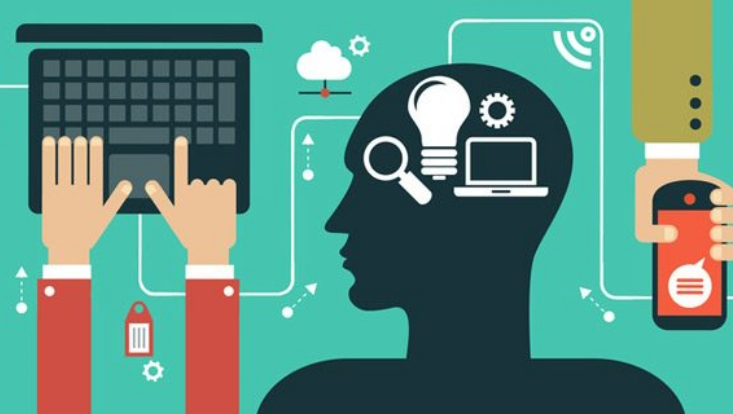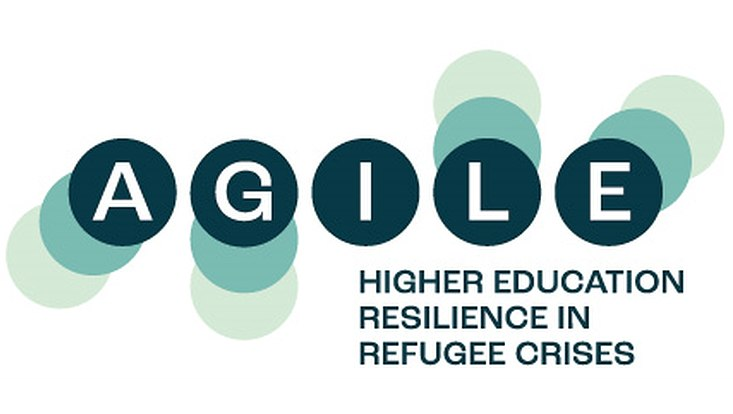lernen:digital is Big News for the Faculty of Education
18 July 2023

Photo: ellagrin / Fotolia
The Federal Ministry of Education and Research is establishing 4 digital skill centers for digital and digitally supported teaching in schools and further education (Kompetenzzentren für digitales und digital gestütztes Unterrichten in Schule und Weiterbildung) as part of its digital skills network, Kompetetenzverbund lernen:digital. The digital skills centers are intended to assist with inter-state research projects and digitalization-related professional development, as well as connecting actors in teacher training. The planned digital skill centers represent the fields of (1) STEM, (2) language, society, economics, (3) music, art, and sport, and (4) digital school development. The Faculty of Education is involved in all 4 digital-skills centers with 5 subprojects.
(1) Prof. Dr. Mirjam Steffensky from chemistry didactics is dealing with the network project for digital-related and digitally-supported professionalization of STEM teachers (Digitalisierungsbezogene und digital gestützte Professionalisierung von MIN-Lehrkräften, DigiProMIN), the model-based development and implementation of prototypes for a multi-dimensional strategy for subject-specific and interdisciplinary digital-related and digitally-supported professionalization of teachers for future-oriented STEM teaching.
(2) The network for digital independence as the goal of pioneering teacher educations for languages, society, and economic studies in the digital world subproject (Digitale Souveränität als Ziel wegweisender Lehrer:innenbildung für Sprachen, Gesellschafts- und Wirtschaftswissenschaften in der digitalen Welt, DiSo-SGW) is working on the further development, optimization, and implementation of innovative and empirically-tested professional and continuing education prototypes for digital teaching and learning with a language, social, and economic focus. Prof. Dr. Andreas Körber from history didactics, working with a transdisciplinary subject-specific team, is developing professional education modules on extending subject-specific digital independence in the history field.
(3) The database-supported planning of digitally based sports education (Datenbankgestützte Planung von digitalgestütztem Sportunterricht) run by Prof. Dr. Claus Krieger from the movement, games, and sports working area aims to implement, evaluate, and further develop a planning-support tool for sports teachers looking to use digital tools in their teaching.
(4) Prof. Dr. Freydis Vogel from the media education in the Kokon (teacher cooperation in the context of digital school development) network project is working in the digitally supported collaboration for teaching and organizational development subproject (Digital gestützte Kollaboration für Unterrichts- und Organisationsentwicklung). The subproject focuses particularly on developing measures to support cooperation between teachers, which will be embedded in the digital platform the network project is intended to produce.
(4) The social-space oriented school development subproject (Sozialraumorientierte Schulentwicklung) run by Prof. Dr. Dagmar Killus from the school education and educational research working group is working on the digital-related and digitally supported school (-culture) development through multiprofessional cooperation in all-day primary schools (Digitalisierungsbezogene und digital gestützte Schul(kultur)entwicklung durch Multiprofessionelle Kooperation an ganztägigen Grundschulen, DigiSchuKuMPK). The Hamburg subproject aims to make teaching staff aware of challenging living situations and facilitate resource-oriented action. This is done by testing digital tools that make students' individual social needs transparent.
Additional information on the digital skills centers is available here: https://lernen.digital/

